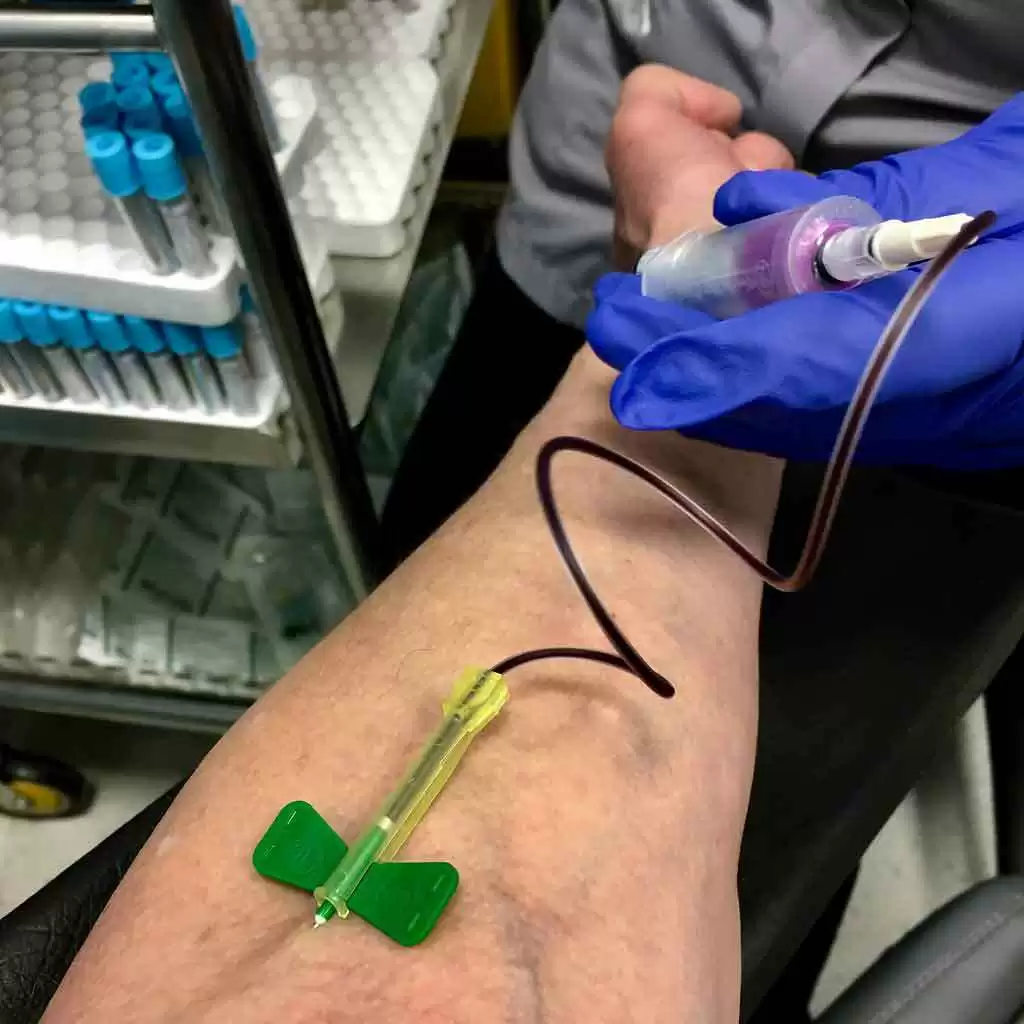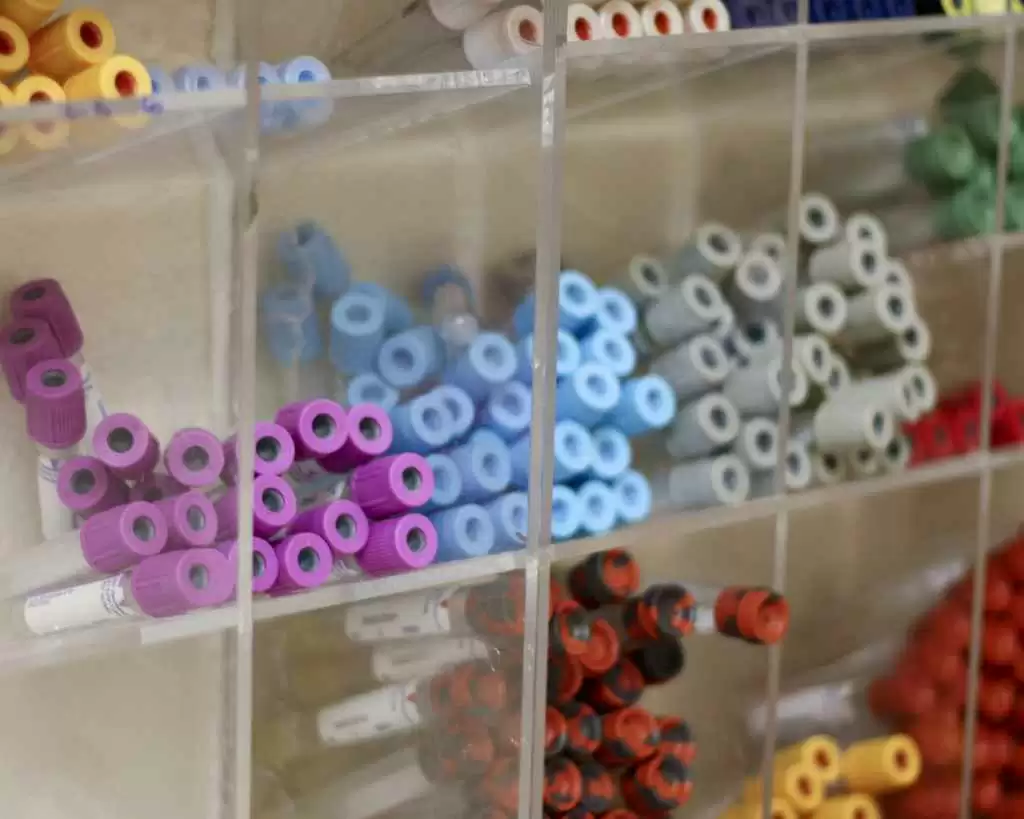
Celiac.com 10/31/2020 - Since this article was originally published in 2008, the tTG test has become the standard for celiac disease screening, while a newer test called "Deamidated Gliadin Peptide (DGP)" is now considered the best for CD, and the company 2G Pharma is unfortunately no longer in business.
Do you know someone who might benefit from a celiac blood test? Maybe they are too shy to assert themselves. Or maybe they’ve been turned down flat by a physician who is not current with the medical literature on celiac disease. As many of us know, asking for celiac testing is sometimes like hitting a brick wall. Stories abound of incorrect diagnoses, cavalier indifference, dismissal, denial, frustration, illness, often leading to a pervasive sense of futility. Each of these stories is punctuated by pain, illness, heartache, and sometimes, death. For the lucky ones, a health care professional who is well versed in celiac disease sometimes furnished the answer. Others found their own way to a gluten free diet. Until now, most have not been so lucky.
Celiac.com Sponsor (A12):
However, the brick wall is starting to crumble. A powerful force is poised to bring new hope to that unlucky, unhappy, unhealthy majority of untreated, undiagnosed group with celiac disease. 2G Pharma Inc. is now offering an at-home test for IgA tissue transglutaminase antibodies (tTG) called the Biocard celiac test. Although currently only available in Canada, it can be ordered over the Internet for only $50. Although not yet approved by Health Canada, the newer version also tests for IgA deficiency, and will thus be more accurate than the celiac testing offered by many conventional laboratories (because they often fail to consider IgA deficiency).
Few physicians would deny the extreme likelihood of celiac disease in the context of positive tTG test results. If the test shows IgA deficiency (when approved) although it is not as reliable an indicator of celiac disease, it would also be well accepted as indicating the need for further investigation for celiac disease. So this new test is offering something very special, and for a very small price.
Those of us who are familiar with celiac disease know that if it goes untreated it can pose a wide range of challenges. Untreated celiacs can appear healthy. Or they can manifest just a single sign or symptom such as isolated iron deficiency or osteoporosis, or rheumatoid arthritis or cancer or thyroid disease or a brain disorder or a fertility problem. On the other hand, untreated celiacs can also show a confusing array of signs, symptoms, and associated autoimmune disease. Still others will report concerns and symptoms that seem more like psychological complaints than physical manifestations of a diet-driven autoimmune disease. For instance, we now know that there are more overweight and obese individuals with untreated celiac disease than there are underweight celiacs. That is what they mean when researchers talk about the protean manifestations of celiac disease.
Whatever the symptom, sign, or ailment, it can stand alone as the sole indicator, or it can be one of a constellation of problems that are due to, or associated with, an underlying case of undiagnosed celiac disease. Yet few physicians will make the connection. Until now, most cases of celiac disease will never be diagnosed because medical professionals are taught to look for a consistent complex of signs and symptoms. Most believe that untreated celiac patients are gaunt, wasted, sickly, and have protruding bellies. While this may have been true in the past we now know that celiac disease is difficult, often impossible, to identify on the basis of symptoms. Objective testing is often the only way that celiac disease can be diagnosed.
Thus, this new test will identify the vast majority of untreated celiac patients. And the test is easily defended against those who might look askance at home testing. Korponay-Szabo et. al. report in Alimentary Pharmacology and Therapeutics that this test is 97% specific and 97% sensitive (1). Test sensitivity is determined by how many celiacs are identified by a positive test. Only 3% of those with celiac disease failed to be identified by this test. However, the one celiac patient that was missed in this research project suffered from IgA deficiency, which is much more common in the context of celiac disease than in the general population. Further, because the newer form of this test would have identified this deficiency, it is very likely that the patient would be further investigated for celiac disease. Thus, the test could be argued to have been 100% sensitive in their study. The same group reported that the test is 97% specific. That means that the test will show positive in cases of celiac disease as well as in 3% of patients who do not have celiac diseae. Several other groups of researchers report that many of those who test positive for tTG often go on to develop celiac disease within a few months or years.
Crovella et. al., report in Digestive and Liver Disease, similar results but with one important exception. When this test was used among a group of impoverished individuals who were infected with filariasis its specificity weakened substantially. People who were infected with this parasite showed positive tTG test results despite the absence of celiac disease. Thus, despite 100% specificity among Brazilian urbanites, the test was only 76% specific when used to screen impoverished suburban Brazilians. Thus, although this test is less than ideal in some third world settings among those with filariasis infections, it is clearly a powerful tool for identifying celiac disease in the industrialized world.
Closer to home, 2G Pharma Inc. is rolling out this new test in Canada, as I write this column. I suggested to Janet Monk that there might be a little cross-border shopping. Her company has chosen to take the high road and avoid the risk of contravening U.S. import/export laws. Sadly, many crooks and charlatans feel perfectly happy to send drugs and other dangerous substances into the US. Yet this young company, offering a simple (but powerful) blood test that could save the US medical system billions of dollars annually, is forced to await appropriate approvals before sending their product into the US. Bear in mind that it is not a drug. It is an at-home test for a dangerous disease that goes undiagnosed in 97% of cases in the U.S. (3) and because of all the associated ailments, takes an enormous toll on at least three million Americans (4).
I would love to see this product available in the U.S., if only to stem the enormous risk of illness and lurking cancers that have been shown to reduce on a gluten free diet among those with celiac disease.
If you live in Canada, you can order or encourage others to order the test. If you live elsewhere, perhaps there is something you can do to make this test available in the U.S. If nothing else, you can order and make use of the test when you visit Canada. In the meantime, this grand new test is poised and ready help diagnose the millions of Americans who will otherwise go untested and undiagnosed. I am confident that some alternative can be implemented to harness this test and get it working for Americans and Canadians alike.
Sources:
- Korponay-Szabó IR, Raivio T, Laurila K, Opre J, Király R, Kovács JB, Kaukinen K, Fésüs L, Mäki M.Coeliac disease case finding and diet monitoring by point-of-care testing. Aliment Pharmacol Ther. 2005 Oct 15;22(8):729-37.
- Crovella S, Brandao L, Guimaraes R, Filho JL, Arraes LC, Ventura A, Not T.Speeding up coeliac disease diagnosis in the developing countries. Dig Liver Dis. 2007 Oct;39(10):900-2. Epub 2007 Aug 13.
- Green PH.Where are all those patients with Celiac disease? Am J Gastroenterol. 2007 Jul;102(7):1461-3.
- Fasano A, Berti I, Gerarduzzi T, Not T, Colletti RB, Drago S, Elitsur Y, Green PH, Guandalini S, Hill ID, Pietzak M, Ventura A, Thorpe M, Kryszak D, Fornaroli F, Wasserman SS, Murray JA, Horvath K. Prevalence of celiac disease in at-risk and not-at-risk groups in the United States: a large multicenter study. Arch Intern Med. 2003 Feb 10;163(3):286-92.









Recommended Comments
Create an account or sign in to comment
You need to be a member in order to leave a comment
Create an account
Sign up for a new account in our community. It's easy!
Register a new accountSign in
Already have an account? Sign in here.
Sign In Now